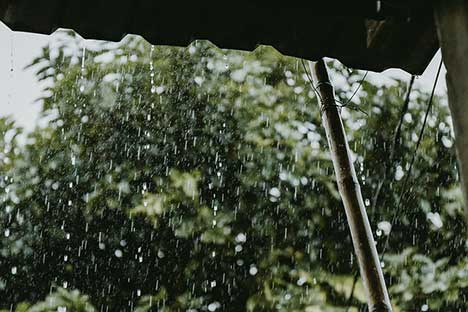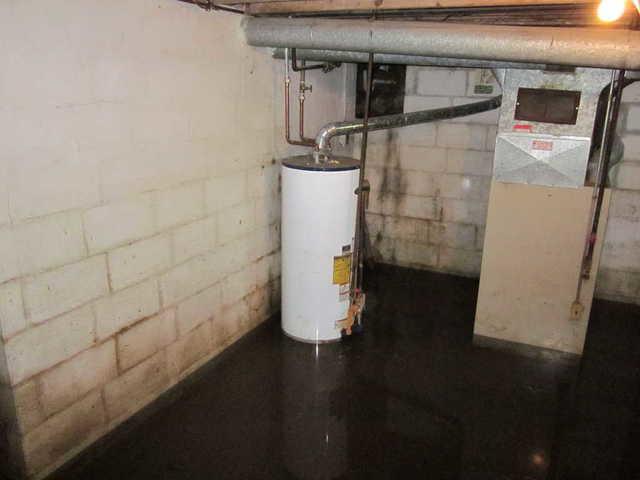
Chicago, renowned for its vibrant culture and architectural marvels, faces significant challenges when it comes to flooding. The city’s unique geographical location, combined with its extensive network of rivers and lakes, makes it particularly susceptible to heavy rainfall and subsequent flooding. The proximity to Lake Michigan and the Chicago River increases the risk of water overflow during storms. Furthermore, the city’s flat terrain can exacerbate drainage issues, leading to water accumulation in basements and low-lying areas. Understanding these risks is the first step in protecting your basement from potential water damage.
Assessing Your Basement’s Vulnerability: Key Areas to Inspect
Before implementing any protective measures, it’s crucial to assess your basement’s vulnerability to flooding. This involves a thorough inspection of several key areas:
First, examine the foundation for any cracks or gaps that could allow water to seep in. Even small cracks can become significant entry points during heavy rainfall. Next, check the condition of your sump pump, ensuring it is functioning correctly and capable of handling large volumes of water. Evaluate the drainage systems around your property, including gutters, downspouts, and the slope of the ground. A proper assessment will help you identify potential weak points and prioritize the necessary improvements to protect your basement effectively.
Installing a Reliable Sump Pump System: Choosing the Right Equipment
A sump pump is one of the most effective tools in preventing basement flooding. It works by collecting and pumping out excess water that accumulates in the sump basin, typically located in the lowest part of the basement. For Chicago homeowners, it’s essential to choose a high-quality sump pump that can handle the city’s heavy rainfall. Look for features such as a durable cast iron or stainless steel construction, a powerful motor, and a high water flow rate. Additionally, consider installing a backup battery-operated sump pump to ensure continuous operation during power outages, which are common during severe storms.
Ensuring Proper Drainage Around Your Property: Techniques and Maintenance
Effective drainage is critical in preventing water from seeping into your basement. Start by ensuring that the ground around your home slopes away from the foundation. This will help direct rainwater away from the house, reducing the risk of water pooling near the foundation. Additionally, clean and maintain your gutters and downspouts regularly to prevent blockages that can lead to water overflow. Installing French drains or other drainage systems can also help manage excess water around your property. Regular maintenance, such as clearing debris from gutters and inspecting drainage systems, is essential to ensure they function correctly during heavy rainfall.

A sump pump is one of the most effective tools in preventing basement flooding.
Sealing Cracks and Waterproofing Your Basement: Materials and Methods
Cracks in the foundation or walls of your basement can provide easy entry points for water. It’s important to seal these cracks using high-quality sealants designed for basement waterproofing. Epoxy and polyurethane injections are commonly used to fill and seal cracks, providing a long-lasting barrier against water intrusion. Additionally, consider applying a waterproof coating to the walls and floors of your basement. Products such as waterproof paints, sealants, and membranes can create an extra layer of protection against moisture, helping to keep your basement dry even during heavy rainfall.
Installing a Basement Drainage System: Options and Benefits
A basement drainage system, such as a perimeter drain or interior French drain, can effectively manage water that enters your basement. These systems work by collecting water and directing it to the sump pump, which then pumps it out of the basement. Perimeter drains are installed along the interior or exterior walls of the basement, while French drains are typically installed under the basement floor. Both systems can be highly effective in preventing flooding and protecting your basement. Although installing a French drainage system can be a significant investment, it provides long-term benefits by reducing the risk of water damage and maintaining the integrity of your basement.
Regular Maintenance and Inspections: Keeping Your Systems in Check
Regular maintenance and inspections are crucial in ensuring that your basement remains protected from floods. Schedule annual inspections of your sump pump, drainage systems, and foundation to identify and address any potential issues. During inspections, check for signs of wear and tear, such as rust, corrosion, or blockages. Additionally, keep an eye on weather forecasts and take proactive measures, such as clearing gutters and testing your sump pump, before heavy rainfall. Regular maintenance not only helps prevent flooding but also extends the lifespan of your protective systems, ensuring they function effectively when needed.
Creating an Emergency Flood Response Plan: Steps to Take During a Flood
Despite your best efforts, there may be times when flooding is unavoidable. Having an emergency flood response plan in place can help minimize damage and ensure the safety of your family. This plan should include steps to take in the event of a flood, such as moving valuable items to higher ground, shutting off electricity, and having an emergency kit ready with essential supplies. Your emergency kit should include items such as flashlights, batteries, first-aid supplies, bottled water, non-perishable food, and important documents. Additionally, establish a communication plan with family members to ensure everyone knows what to do and where to go during a flood.

Having an emergency flood response plan in place can help minimize damage and ensure the safety of your family.
Protecting Your Belongings: Storage Solutions and Precautions
In addition to safeguarding the structural integrity of your basement, it’s important to protect your belongings from potential water damage. Store valuable items in waterproof containers or on elevated shelves. Consider using plastic or metal shelving units, which are less susceptible to water damage compared to wooden ones. Additionally, keep important documents and sentimental items in a safe, dry location outside the basement. For items that must be stored in the basement, use waterproof storage bins and place them on raised platforms to minimize the risk of water damage.
Utilizing Flood Insurance: Financial Protection and Peace of Mind
While taking preventive measures can significantly reduce the risk of basement flooding, it’s also wise to have a financial safety net in place. Flood insurance can provide coverage for damages caused by flooding, helping you recover more quickly and efficiently. Review your current insurance policy and consider adding flood insurance if it’s not already included. Flood insurance typically covers the cost of repairing or replacing damaged property, as well as additional living expenses if you need to temporarily relocate. This can offer peace of mind and financial protection in the event of a flood, ensuring you can recover and rebuild without undue financial strain.
Community Resources and Support: Leveraging Local Assistance
Protecting your basement from floods is not a task you have to tackle alone. Many communities in Chicago offer resources and support for homeowners dealing with flood risks. Reach out to local government agencies, community organizations, and neighbors for advice and assistance. Participating in community efforts to improve drainage and flood management can also benefit your property and the entire neighborhood. Community resources may include sandbags, emergency shelters, and flood preparedness workshops. By working together, you can enhance the overall resilience of your community and reduce the impact of flooding on individual homes.
Adapting to Climate Change: Future-Proofing Your Flood Protection
Climate change is expected to increase the frequency and intensity of heavy rainfall events in Chicago. As a homeowner, it’s important to stay informed about climate change projections and adapt your flood protection strategies accordingly. This may involve upgrading your sump pump system, enhancing your drainage solutions, or investing in more robust waterproofing measures. Consider implementing green infrastructure solutions, such as rain gardens and permeable pavements, to manage stormwater more effectively. By staying proactive and informed, you can better protect your basement from the impacts of climate change and ensure your home remains resilient in the face of evolving weather patterns.
Professional Help and Consultation: When to Call in the Experts
While many flood protection measures can be implemented by homeowners, some situations may require professional expertise. Hiring a good Chicago plumber or waterproofing specialist can provide you with tailored recommendations and high-quality installations. Plumbers can also conduct thorough inspections and identify potential issues that may not be apparent to the untrained eye. Investing in professional help can offer long-term benefits and peace of mind, ensuring that your flood protection measures are effective and reliable. When selecting a professional, look for experienced and certified contractors with a proven track record of successful flood protection projects.
Conclusion: Taking Action to Safeguard Your Basement
Protecting your Chicago basement from floods requires a combination of proactive measures, regular maintenance, and community support. By understanding the unique flood risks in Chicago and implementing the best practices outlined in this article, you can significantly reduce the likelihood of basement flooding and safeguard your home and belongings. Stay informed, stay prepared, and take action to protect your basement from the challenges posed by heavy rainfall and flooding. With the right strategies and resources, you can create a resilient and secure environment for your family, ensuring your home remains a safe haven even during the most severe weather events.



